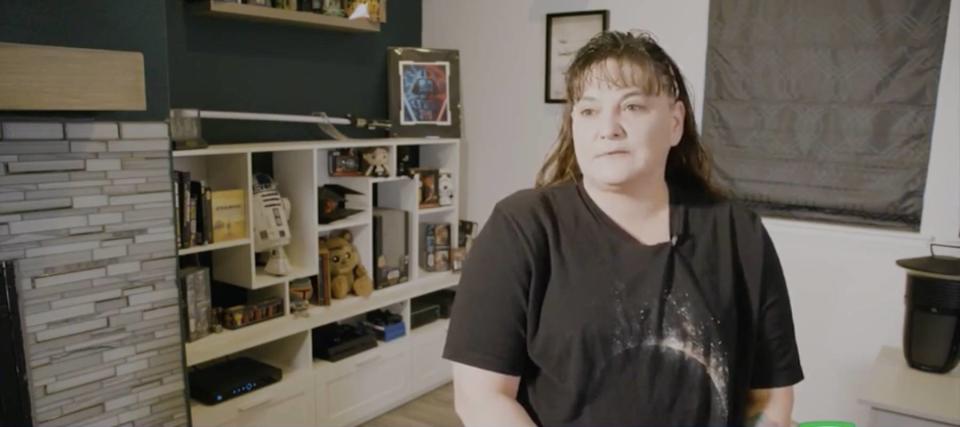‘I feel like a failure’: California woman forced to sell home to repay $600K loan after BurgerIM dream turns into heart-wrenching nightmare

Danielle Fraioli thought she had found the perfect path to wealth when she opened her BurgerIM franchise in Modesto, California.
"It’s really hard to put into words how exciting it was,” Fraioli told NBC affiliate KCRA 3. “We had lines out the door when we opened. The dining room was packed from open to close."
Don't miss
Car insurance premiums in America are through the roof — and only getting worse. But 5 minutes could have you paying as little as $29/month
Lock in juicy quarterly income through this $1B private real estate fund — even if you’re not a millionaire. Here’s how to get started with as little as $10
5 minutes could get you up to $2M in life insurance coverage — with no medical exam or blood test
To launch the franchise in 2019, Fraioli invested $50,000 and took out a $600,000 business loan. But by 2023, her business was on the brink of failure. She said the franchisor slowly cut communication and advertising support. According to the Federal Trade Commission (FTC), BurgerIM’s founder, Israeli businessman Oren Loni, sold over 1,500 franchises under false promises, withholding key information required by the Franchise Rule.
As a result, Fraioli was forced to close her business and sell her home to repay the loan. "It's really hard,” she added. “I feel so bad. I feel like a failure. Everybody tells me I'm not, but I worked so hard for the bank just to take it away from me."
Fraioli’s story highlights the risks of franchise ownership. While many franchises succeed, potential owners must understand how franchises operate and thoroughly research to find the right opportunity.
What causes a franchise business to fail?
The franchise business model is based on two parties: The franchisor and the franchisee. Both parties work together to ensure the successful launch and health of the business as it opens.
At the top, the franchisor offers potential owners the opportunity to buy into their business and operate their independent location under the brand. In many situations, the franchisor grants the franchisee a license to use the company’s name, benefit from its business model and solutions and gain overall support for the company. In exchange, the franchisee pays an upfront fee, continued payments to the franchisor for using their business name and suppliers (often as a portion of overall sales) and advertising fees. The franchisee is allowed to keep all other proceeds to maintain their business.
There are many different ways that business owners can fund the remainder of their startup costs, like paying rent on businesses and covering supplier costs. Franchisees can bootstrap with their own money, borrow from other investors in the business, or take out a loan guaranteed in part by the U.S. Small Business Administration (SBA). Through the SBA’s programs, business owners can access up to $5.5 million in funds, repayable over an extended period.
There are many reasons why franchises can fail. Some of the common reasons include not matching the demand for the franchise’s products or services, local and national economic conditions, or simply not being able to afford the long-term royalties to the franchisor. In the case of BurgerIM, the FTC alleged the franchisor targeted new business owners who were new to business ownership. As a result, the franchisor was fined and banned from selling future franchises in the U.S.
Read more: These 5 magic money moves will boost you up America's net worth ladder in 2024 — and you can complete each step within minutes.
Due diligence and franchise businesses
Even though opening a franchise business is easier than starting from scratch, potential owners must do their research before considering an opportunity. As with many journeys, the first step starts at home.
The FTC recommended starting with your finances. Determine how much money you have to open a franchise location and how much you could afford to lose as the business becomes profitable. If you are betting solely on financing to keep your living expenses going as the business starts to grow, you could be setting yourself up for failure.
Once finances are organized, the next step is to find the right franchise for you. Not all franchises are restaurants — some of the wide examples of franchise businesses include well-known mechanics shops, sporting goods stores and shipping outlets. Be sure to understand what specialized knowledge you or your employees will need to keep the business running successfully.
The final step is to narrow down what businesses would be the best fit for your knowledge and overall goals. In addition to reviewing the Franchise Disclosure Document (which all franchises must provide to potential franchisees), do your homework about the local market and talk to other franchise owners about their experiences in the community. Once you have a business plan in place, narrow down to the right businesses to build your wealth.
What to read next
Medical debt is the leading cause of bankruptcy in America — just 3 minutes could protect you from disaster
Baby boomers bust': Robert Kiyosaki warns that older Americans will get crushed in the 'biggest bubble in history' — 3 shockproof assets for instant insurance now
The price of home insurance has skyrocketed to an average of $2,285 a year. But smart homeowners can save around $482 a year – here’s how
This article provides information only and should not be construed as advice. It is provided without warranty of any kind.